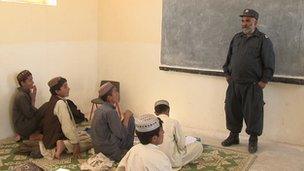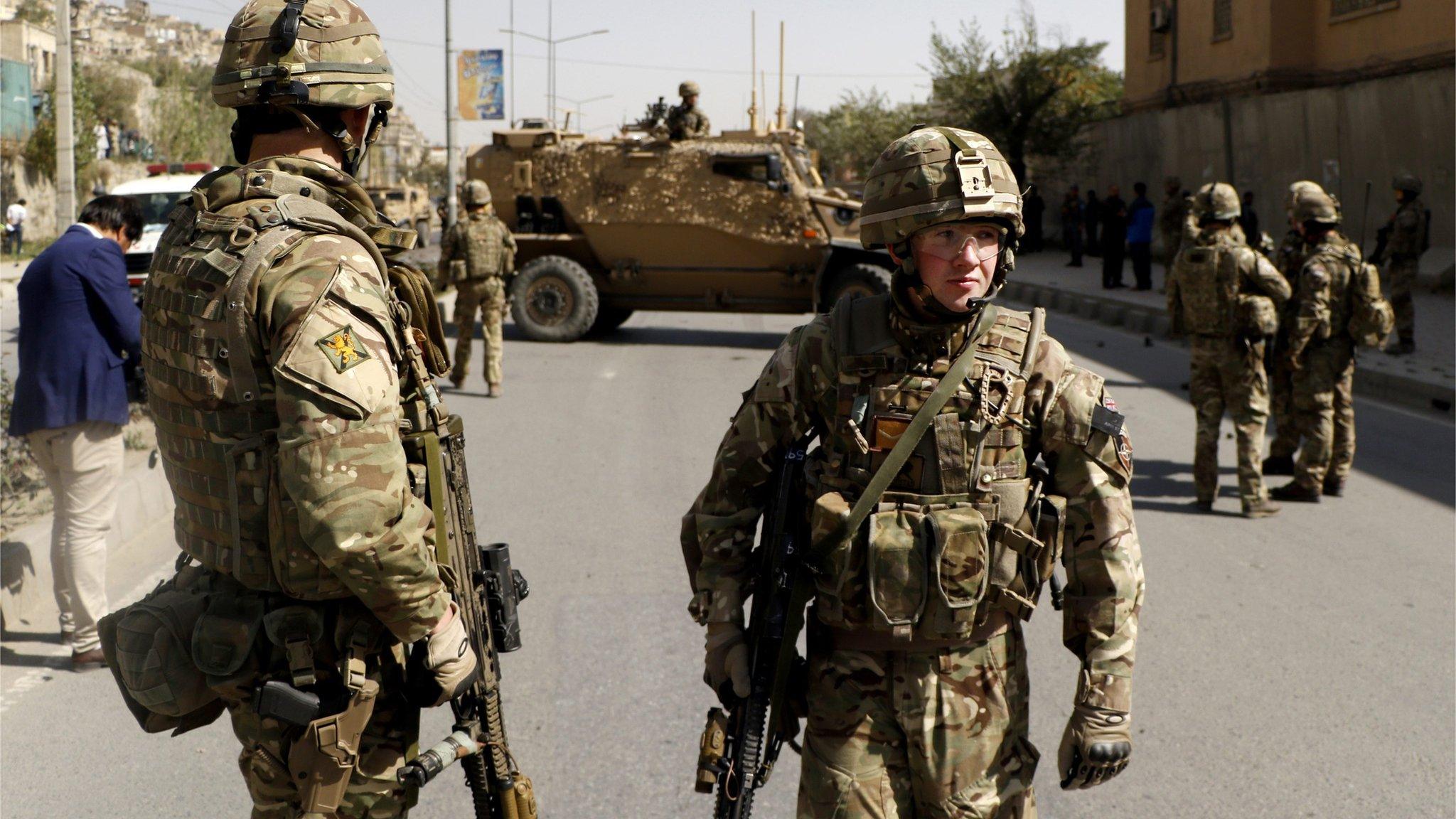UK combat operations in Afghanistan effectively cease
- Published
Urban Afghan handover
HELMAND, AFGHANISTAN: Britain's war in Helmand is all but over, the commander of the military task force there, Brigadier Bob Bruce, has revealed to BBC Newsnight.
"We have reduced our profile to such an extent that we don't do ground combat type operations anymore," Brig Bruce said.
While Nato forces will, in theory, remain in Afghanistan for the next year and a half, in the country's once rebellious south they are all but confined to their bases, begging the question why the drawdown cannot go even faster.
After years of blistering combat in which 440 Britons died, hundreds lost limbs, and billions of pounds were spent, public consciousness about the ending of the mission seems to have lagged behind the reality of bases closed and troops confined increasingly to camp.
The Ministry of Defence (MoD) seems to have been reluctant to publicise its departure, one senior figure explains this in terms of, "tensions", between military leaders and politicians over the pace of withdrawal.
The simple facts though are these: while three years ago the British had 120 bases in Helmand - many of them patrol bases or small forts - the figure had fallen to 37 by November last year, and is now down to 12.
Can relative normality continue once Nato's forces leave Afghanistan?
Since Nato agreed in principle a decision known as 'Milestone 13' last month, it has stopped launching ground operations in central Helmand, although speaking to British soldiers it is apparent that many have not been "outside the wire", since December.
So, what on Earth will British troops be doing then between now and the end of 2014?
"[The] Afghans with whom we work still like to know that they can call upon us," says Brig Bruce, suggesting that UK forces will stand ready to help their allies if things escalate out of control.
However, among the Afghan commanders we spoke to, there appears to be a determination not to ask for British help in operations.
"In terms of combat", said Brigadier General Shirin Shah, commanding the Afghan National Army Brigade in central Helmand, "we did not need any help with that and we have not asked for any".

Nato regards schools like this as a better measure of success than bullets fired
British troops are still engaged in some risky activities - including running road convoys to evacuate equipment from their remaining bases, providing some bomb disposal back up, and sending helicopters on supply runs.
The UK special operations task force, which is generally employed away from Helmand, still mounts some raids.
It is perhaps the fear that a soldier may lose their life on such a mission that has led ministers and generals to avoid using explicit language about the UK's war in Afghanistan being over.
Away from the south, US troops still face hard fighting in the east of the country, along the Pakistani border.
And even in Helmand and Kandahar provinces, the southern one-time Taliban strongholds that were the main focus of Nato operations during 2010-11, there is still a good deal of lawlessness, only it is mainly the Afghan forces that deal with it.
British commanders portray this change as the success that now allows them to scale back.
During the current six month troop rotation - now coming to its end - around 900 troops were sent home early, bringing the total down to around 7,000. There are plans to cut back to 5,200 by the end of the year, both figures exclude the special forces group of around 1,000.
How many of these people are really necessary given the fact that they are no longer mounting combat operations is open to question.
Commanders argue that maintaining certain capabilities, like the state of the art combat hospital at Camp Bastion or the helicopter force leaves them no option but to maintain a garrison that will be measured in the thousands rather than hundreds until very near the end.
A Nato spokeswoman adds: "NATO has not halted combat operations. In a matter of months, we will reach a milestone, when the Afghan forces will move into the lead across the country, while ISAF's (International Security Assistance Force) main effort will shift from combat to support. This is part of the transition plan, and ISAF will remain combat-ready until the end of 2014."
Watch Mark Urban's latest film from Afghanistan on Newsnight on Tuesday 19 March 2013 at 10.30GMT on BBC Two, and then afterwards on the BBC iPlayer and Newsnight website.
- Published15 October 2015

- Published28 January 2013
